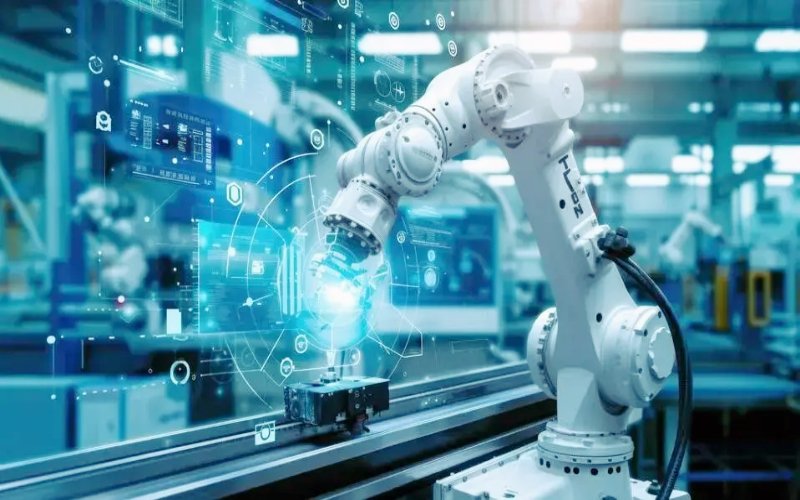Automation in technology is rapidly changing how industries operate, enhancing efficiency, productivity, and innovation. With advancements in artificial intelligence (AI), machine learning, and robotics, tasks that once required human intervention are now automated, paving the way for a new era in technological transformation. In this article, we’ll explore the various types of automation, its industry applications, the benefits, challenges, and future implications of this game-changing technology.
What is Automation in Technology?
Automation in technology refers to using machines, software, or other digital tools to perform tasks without direct human input. This process includes everything from robotic assembly lines in manufacturing to AI-driven customer service chatbots. Automation has become essential for businesses, enabling them to streamline operations, improve accuracy, and ultimately deliver better services.
Why is Automation in Technology Important?
The importance of automation in technology cannot be overstated. As digital transformation accelerates, companies are leveraging automation to stay competitive. Automated systems enhance productivity by completing repetitive tasks, allowing employees to focus on creative, high-value work. Moreover, automation minimizes errors, helping industries maintain consistent quality while reducing operational costs.
Key Types of Automation Technology
Automation in technology comes in various forms, each serving distinct purposes and catering to different industry needs. Below are some of the most common types:
1. Robotic Process Automation (RPA)
Robotic Process Automation, or RPA, is software-based automation that performs rule-based tasks. These tasks can include data entry, invoice processing, and simple customer inquiries. With RPA, businesses automate time-consuming processes, enabling employees to tackle more strategic projects.
2. Artificial Intelligence (AI) and Machine Learning (ML)
AI and ML are transformative forces within automation in technology. These technologies allow systems to learn from data, predict outcomes, and make decisions without human intervention. AI and ML are especially valuable in industries that require data analysis, like healthcare, finance, and logistics, offering insights that help businesses make more informed decisions.
Benefits of Automation in Technology
Automation in technology brings numerous benefits, which are transforming industries across the globe. Here are some of the key advantages:
Increased Efficiency and Productivity
Automating tasks can drastically increase operational efficiency. Processes that once took hours can now be completed in seconds. For instance, automated assembly lines can produce goods faster and more consistently than manual labor, reducing bottlenecks and increasing productivity.
Cost Savings
Automation helps companies save on labor costs by minimizing the need for human involvement in routine tasks. These savings can be allocated toward innovation, research, and development, enabling businesses to expand and improve their services.
Industry Applications of Automation in Technology
Automation is revolutionizing various industries, bringing about operational changes that were once unimaginable. Here are some of the sectors where automation in technology has the most impact:
Manufacturing
In manufacturing, automation has led to increased precision, safety, and efficiency. Robots and automated machines handle dangerous and repetitive tasks, significantly reducing workplace accidents. Additionally, technologies like Computer Numerical Control (CNC) enable precise machining, improving product quality and consistency.
Healthcare
Automation in healthcare has improved patient care, streamlined administrative tasks, and advanced diagnostics. Automated systems handle routine tasks such as scheduling appointments and processing patient records, freeing up medical professionals to focus on patient care. AI-powered diagnostic tools also help doctors analyze medical data, leading to quicker and more accurate diagnoses.
Finance
The finance industry relies heavily on automation for transaction processing, fraud detection, and customer service. Automated systems help institutions deliver faster, more reliable services, strengthening security and reducing human error. Chatbots and AI-driven tools further enhance customer experience by handling inquiries efficiently.
Automation in Everyday Technology
Automation has become an integral part of our daily lives, often without us even realizing it. Here are some examples:
Smart Homes and Personal Devices
Automation in technology has reached personal devices and smart home systems, allowing users to control lighting, temperature, and security settings remotely. These systems are becoming increasingly intelligent, learning user preferences and adjusting settings automatically to improve comfort and efficiency.
Customer Service and Chatbots
Chatbots and virtual assistants are now common tools in customer service, handling queries 24/7 and providing quick responses to frequently asked questions. By automating routine support tasks, businesses can offer faster service and improve customer satisfaction.
Potential Challenges of Automation in Technology
While automation in technology offers many benefits, it also presents certain challenges that need addressing:
Job Displacement Concerns
One major concern is the potential for job displacement as machines and software perform tasks traditionally done by humans. To mitigate this, businesses and governments are investing in training and upskilling programs to prepare workers for new roles in a tech-driven economy.
Cybersecurity Risks
As processes become more automated, the risk of cyberattacks increases. Automated systems are vulnerable to hacking, especially those that store sensitive information. Therefore, strong cybersecurity measures are essential to protect automated systems from potential threats.
Future of Automation: What’s Next for Automation in Technology?
Automation in technology continues to evolve, with exciting developments on the horizon that promise to further transform industries:
Hyperautomation
Hyperautomation combines advanced technologies like AI, machine learning, and RPA, aiming to automate even complex, decision-based tasks. This approach enables end-to-end automation, maximizing efficiency and allowing businesses to streamline their entire operations.
Autonomous Vehicles and Drones
In transportation, autonomous vehicles and drones are rapidly advancing, with the potential to revolutionize logistics, delivery services, and even personal transportation. These autonomous technologies could lead to safer roads and more efficient supply chains.
Ethical and Social Considerations of Automation in Technology
As automation in technology becomes more sophisticated, ethical and social implications arise that need careful consideration:
Privacy and Data Usage
Automation technologies often rely on large datasets, raising privacy concerns. It’s essential for companies to be transparent about data usage and comply with regulations to ensure that user information is protected.
Impact on Society
Automation has a profound impact on society, particularly on the workforce. While it creates new opportunities, it also reshapes job markets. Policies that promote equitable benefits from automation can help society adapt to these changes and support inclusive growth.
Conclusion: Embracing Automation in Technology with Caution and Strategy
Automation in technology is reshaping industries, creating more efficient, productive, and innovative environments. While it offers unprecedented advantages, it’s essential to address the challenges and ethical implications that come with it. As industries and societies continue to adapt, the future of automation looks promising, with transformative potential that must be balanced thoughtfully. Embracing this technology strategically can lead to positive outcomes, ensuring both economic growth and societal benefit.
Also visit on techitl.com.




